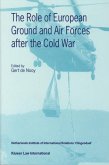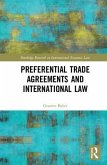The end of the cold war did not begin an era of world peace. The forces of marginalization, civil war, and genocide have uprooted whole societies in Africa, the Balkans and the Caucasus. In fact, the end of superpower competition means that the world now lacks external actors powerful enough to intervene successfully in local conflicts. The early 1990s saw the beginning of a search for possibilities for conflict prevention. This work is one of the first to set the analysis of early warning and conflict prevention firmly in the context of the changes and continuities in the structures of post-Cold War politics. Early Warning and Conflict Prevention proceeds from the position that sufficient early warning could enable governments and international organizations to intervene at an early stage, rather than waiting until disputes erupt into violence. It analyses the theoretical and practical complexities of timely warning and effective response in conflict resolution. It also investigates the extent to which conflict prevention has become a concrete element in the policies of governments, non-governmental organizations, and international organizations. The result of an international symposium on early warning and conflict prevention in November 1996, this work examines this significant issue in international relations within the unique political framework of post-Cold War developments, making it an important resource for academics, policymakers, government officials, and others interested in the present and future state of conflict resolution.
Hinweis: Dieser Artikel kann nur an eine deutsche Lieferadresse ausgeliefert werden.
Hinweis: Dieser Artikel kann nur an eine deutsche Lieferadresse ausgeliefert werden.








